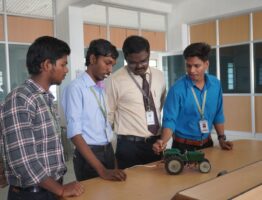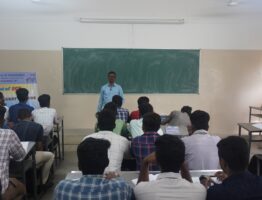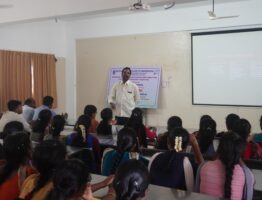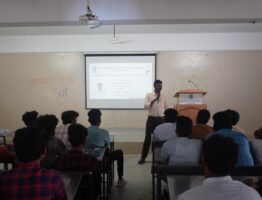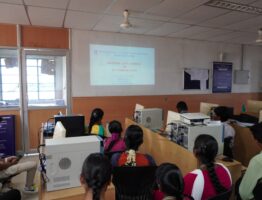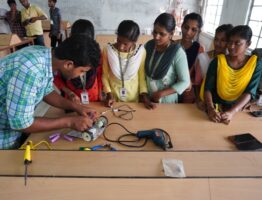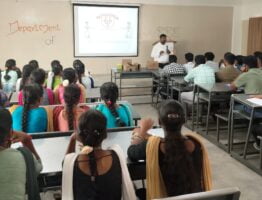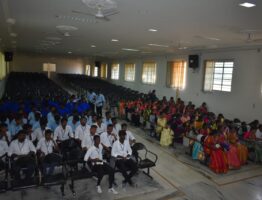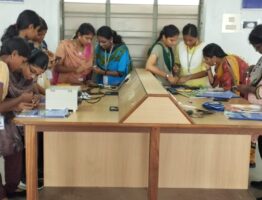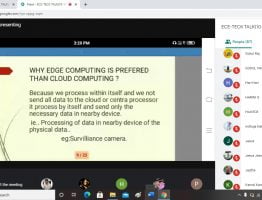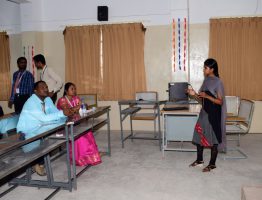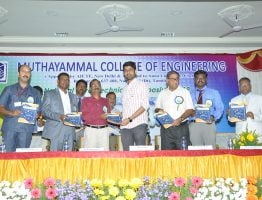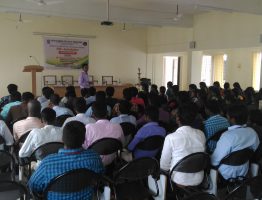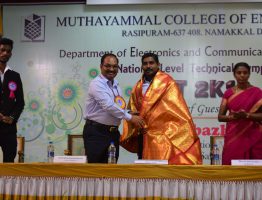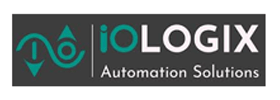 Overview
Overview
Electronics and Communication Engineering is an advancing field, with new ideas emerging every day. From mobile phones to fibre optics to Internet of Things (IoT), there are exciting technologies to explore. The Department of Electronics and Communication engineering was established in the year of 2012 with the aim of providing quality education which helps students in showing their excellence. The department organizes regular symposium and workshops to update the practical knowledge of the students and to give them excellence in various domains.
 Vision
Vision
- To provide sound Knowledge in Communication and Innovative thinking and also by conducting Personality development training classes.
- To develop Electronics and Communication Engineers by keeping pace with changing technologies, professionalism, creativity research and employability.
 Mission
Mission
- To provide quality and contemporary education through effective teaching- learning process that equips the students with adequate knowledge in Electronics and Communication Engineering for a successful career.
- To analyze, design and implement electronics-based solutions to meet the real-world problems, with constant update of knowledge.
Programmes
- B.E Electronics and Communication Engineering
Program Educational Objectives
Program Outcomes
Program Specific Outcomes

